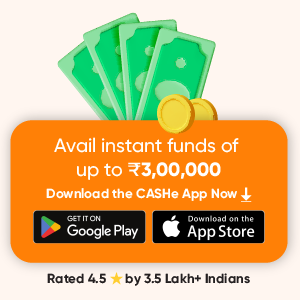We live in a digital sphere where we deal with a digitally advanced world on a daily basis. In such an environment, it is not easy to verify someone’s identity. And this is why the concept of KYC, otherwise known as Know Your Customer, has come into the picture. And e-KYC is the digital KYC process. With this, it becomes easy to verify identity quickly and securely.
As it works electronically, it is faster, easier, and more efficient than traditional methods. By leveraging this technology, e-KYC not only reduces paperwork but also ensures accuracy for both customers and service providers. So, let’s understand more about the e-KYC meaning, the e-KYC process, different types of e-KYC, how to check e-KYC status and more.
What is e-KYC?
As mentioned earlier, e-KYC stands for electronic Know Your Customer. It is a digital process wherein the latest technology is used to verify the identity of individuals. Back in the day when traditional methods were used, the KYC process used to be time-consuming. However, with e-KYC, verification is done digitally, often using an individual’s Aadhaar card, within a minimal timeframe.
Why is e-KYC Important?
e-KYC is important for many reasons. One of the significant reasons is that it simplifies and speeds up the identity verification process. It helps prevent fraud and ensures that services are provided to genuine customers. Moreover, by reducing the need for physical documents, e-KYC also minimises the risk of document forgery and loss. Also, it enhances the customer experience by making the verification process quick, efficient, and hassle-free. So, whether you are applying for a personal loan or a credit card, e-KYC would make sure the documents required for a personal loan are verified swiftly.
Different Types of e-KYC
Here are the major types of e-KYC processes:OTP Based Aadhaar e-KYC
Here, a One-Time Password (OTP) is sent to the mobile number registered with the individual’s Aadhaar card for e-KYC verification. The individual enters the OTP to verify their identity. This method is quite simple and can be completed from any remote location.Biometric Based Aadhaar e-KYC
In this method, the individual’s fingerprint is used for verification. The biometric data is matched with the data stored in the Aadhaar database to confirm the person’s identity. This method is highly secure and accurate with minimal chances of error.Aadhaar Paperless e-KYC Offline Process
This is an offline method wherein individuals download an XML file from the UIDAI website, which contains their Aadhaar details. They can then share this file with service providers for verification.
How to Apply for e-KYC?
Applying for an e-KYC is as easy as ordering a pizza. Wondering how? Well, here are the methods to apply for e-KYC:Aadhaar e-KYC Online Process
- Go to the official website or app of the service provider where you want to complete the e-KYC registration
- Find and click on the option for e-KYC
- Provide your Aadhaar number
- An OTP would be sent to your registered mobile number. Enter this OTP to verify your identity.
- Your identity would be verified instantly and the e-KYC process would be done.
Aadhaar e-KYC Offline Application Process
- Visit the UIDAI website and download the Aadhaar XML file, which contains your e-KYC documents
- Now, go to the physical office of the service provider where you want to complete the e-KYC registration
- Provide the XML file to the service provider
- The service provider then verifies your details using the XML file and eventually completes the e-KYC process.

Documents Required for e-KYC
To complete the e-KYC process, you need your Aadhaar card. This card contains all the important details including your name, address, date of birth, and biometric data. Also, keep in mind that for other financial services, such as applying for a personal loan, additional documents like income proof and bank statements may be required.
Eligibility Criteria for e-KYC
To be eligible for e-KYC, you must have a valid Aadhaar card. This means you need to be an Indian resident who has registered with the Unique Identification Authority of India (UIDAI) and has a valid Aadhaar number. Also, your mobile number should be linked to your Aadhaar card to facilitate OTP-based verification.
Benefits of e-KYC
There are many benefits of e-KYC and the most significant ones are:
- Verification is done quickly and conveniently
- Reduces the need for physical documents.
- Minimises the risk of fraud and document loss.
- Can be done remotely and hence, saves time and effort.
- Reduces the cost associated with physical verification processes.
- Simplifies the verification process for customers.
How to Check e-KYC Status?
To check your e-KYC status, you need to visit the UIDAI website. Once you have accessed it, now you need to enter your Aadhaar number and any other required details. The system would show your current e-KYC status, whether it is pending, completed, or needs additional steps.
How to Change KYC Details Online?
Changing KYC details online is quite easy and here are the steps you need to follow:
Step 1: Go to the official platform where your e-KYC was completed
Step 2: Enter your credentials to access your account
Step 3: Find and click on the option to update your KYC details
Step 4: Provide the updated information and upload any required documents
Step 5: Submit the changes for verification
Aadhaar e-KYC and Government Regulations
The Indian government has mandated the use of Aadhaar for e-KYC in order to secure the verification process. Regulations laid down make sure that service providers follow strict protocols to protect customer data and privacy. This also enhances trust and ensures that the e-KYC process is both reliable and secure. Moreover, you need to link your Aadhaar card to your bank account for several financial services.
Conclusion
So, this is what e-KYC registration and e-KYC process is all about! No wonder e-KYC has revolutionised the way identity verification is conducted. It has made it faster, more secure, and of course, more convenient. Whether you are looking for an instant personal loan or a ,credit line, e-KYC helps you a lot with quick loan approvals. If you are looking for loans with completive interest rates and good terms, explore CASHe. With the help of the CASHe app, you can avail required funds instantly.
FAQs
1. How Does e-KYC Work?
e-KYC works by digitally verifying an individual’s identity using their Aadhaar card. This can be done through OTP verification, biometric verification, or by using an offline XML file from the UIDAI website.
2. What is the Importance of e-KYC?
e-KYC is important because it makes the identity verification process quick, secure, and efficient.</p>
3. What is the Use of e-KYC?
e-KYC is used for verifying the identity of individuals in a digital manner. It is commonly used in banking, finance, telecom, and other sectors where customer verification is necessary.
4. Can e-KYC Be Done Remotely?
Yes, e-KYC can be done remotely. This makes the process convenient as individuals can complete verification from the comfort of their homes.
5. How is e-KYC Different from Traditional KYC?
e-KYC is faster, more secure, and digital compared to traditional KYC. Traditional KYC involves physically submitting documents and waiting for manual verification, while e-KYC is done digitally and instantly.








